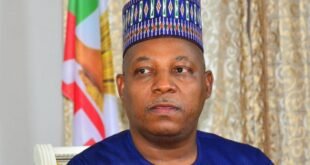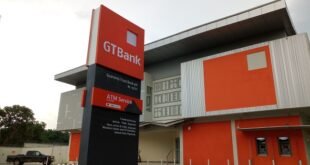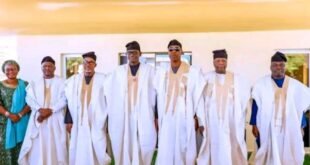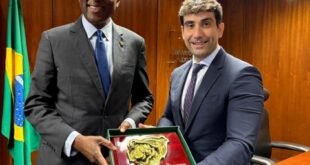The interested parties asked for long -term funding of projects and a change in the mentality of creative entrepreneurs as essential tools to allow the creative industry to thrive.
The interested parties of the creative sector reached this consent in Lagos Tuesday at the Maiden Edition of Qedng Creative Powerhouse Summit organized by Mighty Media Plus Network Limited.
“Financing as a catalyst for a flourishing creative economy”, the summit has brought together filmmakers, musicians, stylists, journalists, business leaders and thoughts, bankers and government officials, among others, to make brainstorming on how to make creatives in Nigeria thriving and not just survive.
In his welcome speech, the founder and CEO of Mighty Media, Olumide Iyanda, asked for “honest conversations”, noting that it is time that creatives think and act intelligent so that the industry flourishes.
“The creative economy of Nigeria contributes to about 5.6 billion dollars to our GDP and is the second highest employer in the country. The Federal Government has set a bold objective of increasing the contribution of the sector to $ 100 of $ by 2030. The plan tries to position Nigeria as a main creative and entertainment center on the global scene”, he said.
According to him, talents and ideas abound, but the real challenge is to transform them into “something that people can see, listen, touch and actually pay”.

“We need honest conversations. We need new partnerships. We have to think big and act in an intelligent way,” said Mr. Iyanda, who also acts as an publisher of Qedng and convocation of the Qedng creative power summit.
Group CEO of SO & U, Ufot Udeme, in its role as president of the summit, greeted Qedng as a platform that has “grown constantly in a respectable voice in the Nigerian media and in the space of digital journalism through its commitment to tell authentic stories, amplify emerging voices and the formation of conversations that reflect our national identity.
He agreed that capital is required to unlock the potential of the creative economy of Nigeria and that capital must be sustainable and accessible.
“Because without access to sustainable and strategic funding, creativity struggles to climb. The ideas remain trapped in the notebooks. The studies have closed. The talent is not trained. And the potential remains just that – potential!” he said.
“The problem does not concern only the launch of money in the sector. These are intelligent funding. These are investors who include the long tail of development of content, banks willing to develop tailor -made products for creative entrepreneurs, governments that designate political environments that reward innovation and hiring of risks and the leaders of the private sector who support the leaders of the private sector that support scalable and relevant business models,” It did not happen.
The advertising expert urged Nigerian creative entrepreneurs to demonstrate solid financial management and ensure investors that the funds entrusted to them will be used responsibly.
The founder of Africa Soft Power Group, dr. Nkiru Balonwu, kicked off the discussions with his engaging Keynote speech.
“The challenge, I think, is not the absence of capital but the lack of scalable and structured investment paintings that industry needs to thrive,” he said.
Balonwu has referred to the recent announcement of the Africa film fund from billions of dollars of Afreximbank as part of his mechanics program as a welcome step forward, but he warned that his impact depends on an effective implementation and alignment with the needs of the sector.
He observed that at national level, capital exists in theory, but the true gaps reside in the design, accessibility and alignment with the practical needs of entrepreneurs.
The EFCC probes the traveler on $ 59,000 not declared at Lagos airport
According to her, these funds are needed on large scale projects while most creatives in Nigeria work at the level of micro or early growth.
“Part of what we need are the levels of target level (initial grants), the capital of the seed, the equity of the patient, all adapted to the creative life cycle. We need funding designed for the disordered half, not only the glamorous projects for the title or the final refined product,” he said.
Balonwu, a former CEO of Spinlet, the first music streaming and digital distribution platform in sub-Saharan Africa, has asked for long-term financing solutions that support not only the production of content, but also the often neglected critical infrastructures for a flourishing creative economy, including intellectual property banks, data centers, national distribution networks. Rights management platforms, efficient payment systems and skilled production activities.
“This requires a turn of mentality. Creatives must be seen not only as artists but as businessmen, builders of institution and financially literate architects of the company. The financing must be intelligent, reactive and adapted to the entire creative process, not only to consumption,” he said.
Balonwu also noticed the impact of artificial intelligence (AI) in the sector, exhorting creatives to see him as a qualifying factor, not as a threat.
The special assistant of President Bola Tinubu for the media and advertising, Temitope Ajayi, in his message of good will, assured that the government would continue to support the creative sector.
“In terms of promoting the cultural export of Nigeria, the creative sector has done really well in the last ten years. So, we must praise the operators of this sector for the good work they are doing,” he said.
Ajayi added that creators must grow beyond “subsistence thought” to make industry prosper.
On the panel to dissect the Keynote speech there were director and founder of the Kap group, Kunle Afolayan; President and founder of the All-Africa Music Awards (Afrima), Mike Dada; Founder of Africa Film Finance Forum (Afff), Mary Ephraim-Egbas, and founder of Duke of Shomolu Productions, Joseph Edgar.
During the session moderate from the issuer, panellists, Anke-Ade Funke Treasure, agreed that the loan is the key to unlocking the potential of the sector, but have mentioned difficulty in accessing these funds both by banks, investors and the government.
Former state commissioner of Lagos for tourism, art and culture, Steve Ayorinde, moderated the second panel, which had the executive director of the National Film and Video Censor Board (NFVCB), dr. Shaibu Husseini; Head of the banking sector of SMEs at the First Bank of Nigeria, dr. Inhabitun Famuyiwa; Head of legal and commercial development at the Temple Company, YeMisi Falaye and Group Head of Great Corporates and Structured Finance at Providus Bank, dr. Biodun Ariyo.
While Husseini reiterated the supply of funds for the creative industry by the Nigerian government, the bankers ensured an open mind to understand the complexities of the sector, which would have translated into funding.
The plates were presented on behalf of Qedng to some of the remarkable participants by the publisher of the Realnews magazine and president of the Guild of Corporate Online Publishers (Gocop), Maureen Chigbo; Publishing of the Guerian Guild of Editors (NGE), Eze Anaba and Veterana and director, Joke Silva.
Among the top participants were the special consultant of the Governor of the State of Lagos for the media and advertising, akosile gboyega; Head of the group, brand management and company communication of Polaris Bank, Rasheed Bolarinwa and former Osun state commissioner for information and orientation, Funke Egbemode.
Stay forward with the latest updates!
Join the Conclaveng on WhatsApp and Telegram for notices of news in real time, rupture stories and exclusive content delivered directly to the phone. Don’t miss a title: Sign up now!
Join our WhatsApp channel
Join our Telegram channel
 JamzNG Latest News, Gist, Entertainment in Nigeria
JamzNG Latest News, Gist, Entertainment in Nigeria







